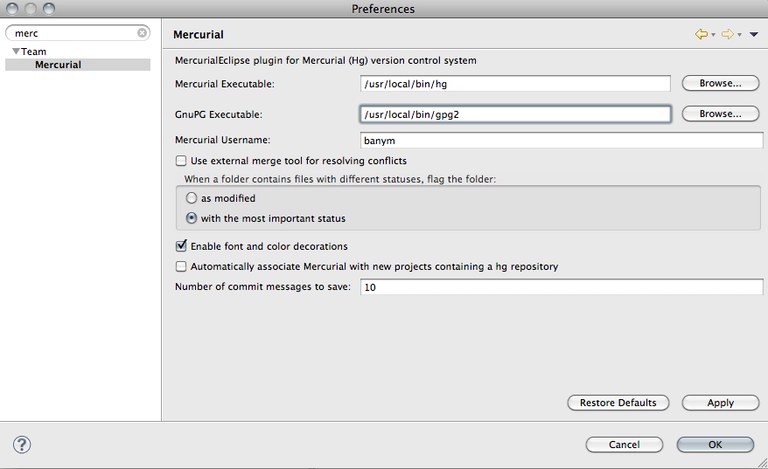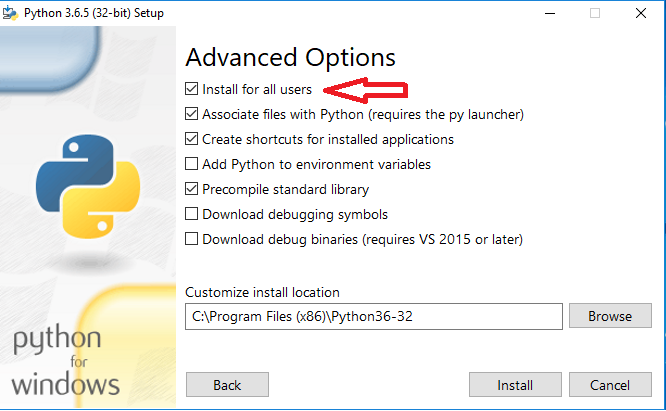
- #Where does mercurial for mac install install
- #Where does mercurial for mac install driver
- #Where does mercurial for mac install software
- #Where does mercurial for mac install download
#Where does mercurial for mac install driver
* If you want to build the ODBC driver or enable sphinxclient support, do not forget to add the appropriate arguments, e.g.: configure -prefix= -with-libiconv-prefix=/opt/local Go in the BUILD directory and run the following command, where prefix is the location where you would like MonetDB installed. The same holds for the OpenSSL libs and includes:Įxport M4DIRS=/usr/local/opt/gettext/share/aclocalĮxport LDFLAGS=-L/usr/local/opt/openssl/libĮxport CPPFLAGS=-I/usr/local/opt/openssl/include Configuring build With Homebrewīefore starting the configure tool, go in the directory where the MonetDB sources are, and create a subdirectory BUILD. * If you are using Homebrew, you will also need to set M4DIRS to the directory where the Homebrew gettext M4 macros are in. To do that, go in the directory you in check you cloned the repository and run: Sources check-out from Mercurial need to be bootstrapped first, before configure can be run.

Note this can take some time and a lot of data will be transferred. To do that make sure you have Mercurial installed on your system first - latest version available here. Optionally, bleeding egde sources can be directly obtained from the MonetDB Mercurial repository.
#Where does mercurial for mac install download
Download the selected file and unpack it in a directory. Sources of the latest released and testing versions on MonetDB can be obtained from the repository: released or testing.
#Where does mercurial for mac install install
Sudo port install automake autoconf pkgconfig openssl pcre libxml2 unixodbc bison geos gsl cfitsio curl libmicrohttpd uriparser libsphinxclient Obtaining sources and bootstrapping Sudo port install automake autoconf Putting it all together These will also be required to run the bootstrap script (see below). You will probably need to install automake (gdbm, perl5.16, perl5) and autoconf from MacPorts as well. Sudo port install cfitsio Before building Install libmicrohttpd (gmp, libtasn1, nettle, libffi, glib2, popt, desktop-file-utils, libxslt, p11-kit, gnutls, libgpg-error, libgcrypt) with-unixodbc =/opt/local -with-readline=/opt/local bash_profile (or the corresponding config file for your shell).Įxport JAVA_HOME=$(/usr/libexec/java_home) export PATH=$/bin:$PATHĪdd the line below when configuring the build to point the tool to the library (see Configuring below). Note: You need the JDK, not the JRE.Īfter JDK in installed, set the JAVA_HOME variable and add the JDK bin directory to your shell's PATH. Install JDK 8, which you can get from the Oracle Java download website. Keep reading/installing if you want to build the other MonetDB modules included in the default build-set. Run the command below to install the required packages (and their dependencies in the brackets): pkg-config pcreīrew install pkg-config pcre openssl Default modules build-set Minimal modules build-setĪfter Homebrew is installed, you should install the required packages for building MonetDB absolute minimal set of modules. You can find these on their website found here. To install Homebrew please follow the up-to-date instructions for your OS X version.

At this point you would need to pick which package manager to use and install only one of them.

There are two community supported package managers that one can use to install the dependencies for building MonetDB on OS X: Homebrew or MacPorts. This affects not only the compiler, but also tools (such as make, pkgconfig, aws, sed) used in the build scripts of MonetDB. Run the following command in Terminal in order to install the Xcode command-line tools:īeware, OS X usually ships with a BSD toolset, unlike most Linux distribution that make use of the GNU toolset. If you want the most recent version of Xcode you can only obtain it from the Apple Developer Website (if you are a registered Apple developer) or directly from the Apple Mac App Store here. Xcode comes with a C/C++ compiler toolset, which (as of the more recent versions) is based on Clang/LLVM and not GCC.
#Where does mercurial for mac install software
To be able to build (almost) any software package on OS X, one needs to have Apple Xcode installed, or at least the Xcode command-line tools. It is kept available for building older releases. The information below the next horizontal line is old and deprecated as of release Oct2020. This document also contains specific information on compilation on macOS at the end. For latest build instructions please read this /hg/MonetDB/file/tip/documentation/source/build.rst.


 0 kommentar(er)
0 kommentar(er)
